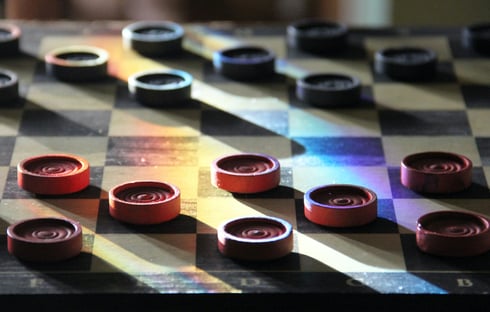Pickleball, the amalgamation of tennis, badminton, and table tennis, is gaining immense popularity across America. This highly competitive and immensely enjoyable sport often requires more than just physical agility — it demands a strategic mindset, much like a game of chess.
In a pickleball match, a player can strategize like playing a game of checkers or playing a game of chess. This observation can open a window into the significance of strategic thinking in both sports and business.
Checkers vs. Chess Approach to Business
The checker’s approach is akin to playing one move at a time, reminiscent of checkers. Meanwhile, chess embraces a long-term strategy. This divergence in mindset underscores the importance of thinking several steps ahead, a concept equally applicable in business development.
Consider the predictability of a job interview. To alleviate apprehension, it’s typical to embark on a journey of strategic preparation while trying to determine the different outcomes of the interview. This approach is simple but profound. You might craft responses tailored to each scenario with the lion's share of attention focused on the most probable outcome of the interview. This strategic approach transforms the interview experience.
While an interview may be highly predictable, the same can be said for a sales call. But there's a distinction between mere pre-call planning and comprehensive strategic preparation. Pre-call planning usually revolves around what you intend to say and do during the interaction. Strategic planning, on the other hand, demands critical thinking and has the potential to significantly enhance the outcome of a conversation.
Strategic Planning
Strategic preparation is the secret weapon that places you several moves ahead of the competition or the individuals you're interacting with. Coupled with the right skills, resources, and tools, it becomes a formidable approach. It reduces the risk of missed opportunities and post-interaction realizations of "I should have done this" or "I should've said that."
Certainly, strategic planning might initially appear time-consuming. However, because most customers and prospects exhibit similar behaviors and tendencies, your strategic plan can be reused with minor adjustments. In essence, you can predict interactions with an impressive 80% level of accuracy, much like a chess grandmaster anticipating their opponent's moves.
Thinking ahead provides a tremendous advantage. Go beyond considering what you want to say, present, and do. Start contemplating ways to enhance the interaction's effectiveness. To prepare effectively, consider these four key questions:
- How can I establish rapport and connect with the individual?
- What are the probable objections or concerns they might raise, and how can I address them proactively?
- What additional value can I offer that sets me apart from the competition?
- How can I ensure a smooth and productive follow-up to the interaction?
By embracing the chess mindset, both in sports and business, you can stay one step ahead and enhance your chances of success. Anticipate, plan, and execute with a strategic edge, turning every encounter into a winning move.
When you Join AAI, we are here to guide and support you. Contact us today, for more information on client evaluation, and our team will be happy to help.